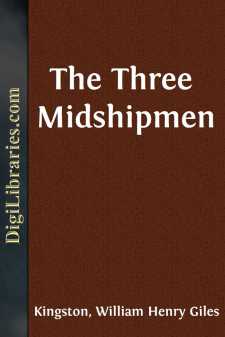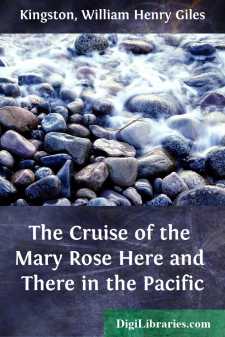Categories
- Antiques & Collectibles 13
- Architecture 36
- Art 48
- Bibles 22
- Biography & Autobiography 813
- Body, Mind & Spirit 142
- Business & Economics 28
- Children's Books 17
- Children's Fiction 14
- Computers 4
- Cooking 94
- Crafts & Hobbies 4
- Drama 346
- Education 46
- Family & Relationships 57
- Fiction 11829
- Games 19
- Gardening 17
- Health & Fitness 34
- History 1377
- House & Home 1
- Humor 147
- Juvenile Fiction 1873
- Juvenile Nonfiction 202
- Language Arts & Disciplines 88
- Law 16
- Literary Collections 686
- Literary Criticism 179
- Mathematics 13
- Medical 41
- Music 40
- Nature 179
- Non-Classifiable 1768
- Performing Arts 7
- Periodicals 1453
- Philosophy 64
- Photography 2
- Poetry 896
- Political Science 203
- Psychology 42
- Reference 154
- Religion 513
- Science 126
- Self-Help 84
- Social Science 81
- Sports & Recreation 34
- Study Aids 3
- Technology & Engineering 59
- Transportation 23
- Travel 463
- True Crime 29
Captain Cook His Life, Voyages, and Discoveries
Categories:
Description:
Excerpt
Captain Cook—His Life, Voyages, and Discoveries.
Early Training.
Among all those Englishmen who, from a humble origin, have risen to an honourable position, Captain James Cook is especially worthy of record. His parents were of the peasant class—his father having commenced life as a farm-labourer, and his mother being a cottager’s daughter. Probably, however, they were both superior to others of the same station, as the husband, in process of time, became farm-bailiff to his employer—a Mr Thomas Skottowe. This was about the year 1730, and the farm of which he had the management was called Airy-Holme, near Ayton, in Yorkshire. Not far from this place, at the village of Marton, near Stockton-upon-Tees; his son James was born, on October 27, 1728. James was one of nine children, all of whom he survived, with the exception of a sister who married a fisherman at Redcar.
The father of this family spent the latter years of his life with his daughter at Redcar, and was supposed to have been about eighty-five years old at the time of his death; so that he must have had the satisfaction of seeing his son rising in his profession, though probably he little thought of that son as establishing a fame which would be handed down in history.
James Cook does not appear to have enjoyed any peculiar educational advantages, but owed his subsequent advancement chiefly to his own intelligence, perseverance, and diligence. He first went to a village school, and was afterwards sent, at the expense of Mr Skottowe, to an ordinary commercial school, kept by a Mr Pullen. He continued there four years, and was then apprenticed to Mr William Sanderson, a grocer and haberdasher at the fishing town of Straiths, ten miles from Whitby. It may be supposed that the occupation in which he was engaged was not suited to his taste. The sea was constantly before his eyes, and the desire to seek his fortune on it sprang up within him, and grew stronger and stronger, till in about a year after he went to Straiths he obtained a release from his engagement with Mr Sanderson, and apprenticed himself to Messrs Walker and Company, shipowners of Whitby. He went to sea for the first time when he was about eighteen, on board one of their vessels—the Truelove collier, (Note 1) of four hundred and fifty tons burden, trading between Newcastle and London. The lad soon showed that he was well fitted for his new profession, and in 1748, not two years after he had commenced it, we find him especially directed to assist in fitting for sea the Three Brothers, a new ship of six hundred tons. While he served on board this ship she was hired by Government as a transport; and on her being paid off she was employed in the Norway trade.
After making several voyages in the Three Brothers up the Baltic, young Cook was promoted to the rank of mate on board the Friendship. He had by this time gained the goodwill of his employers; and had made several other friends on shore, who, before long, were enabled to render him essential service. He was now known as a thorough seamen; indeed, from the moment he went on board ship, he had steadily applied his mind to acquiring a knowledge of his profession....












